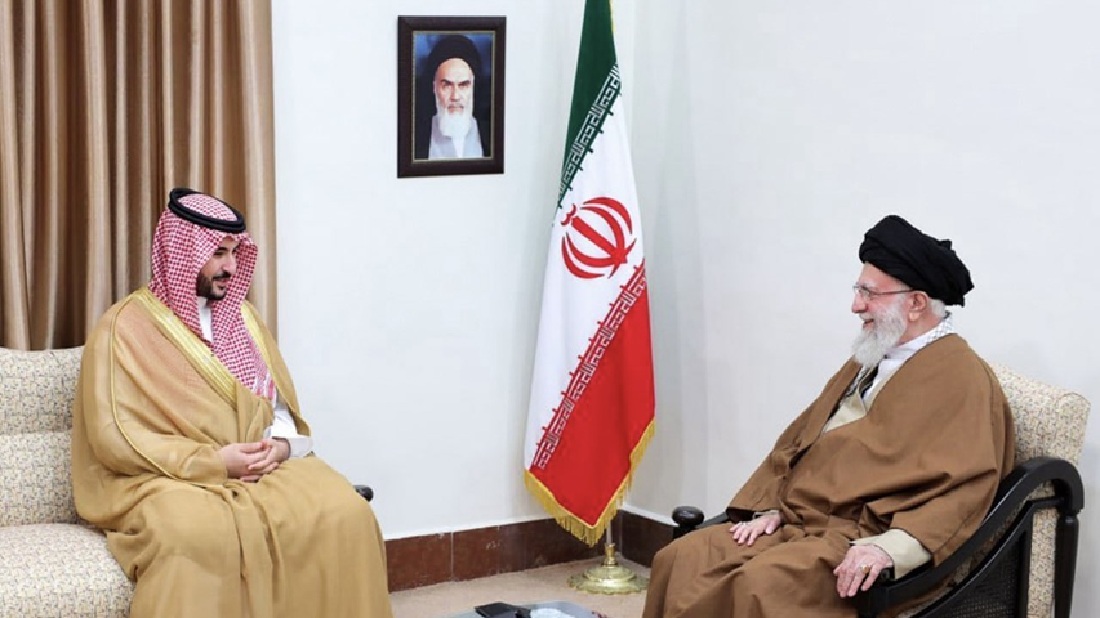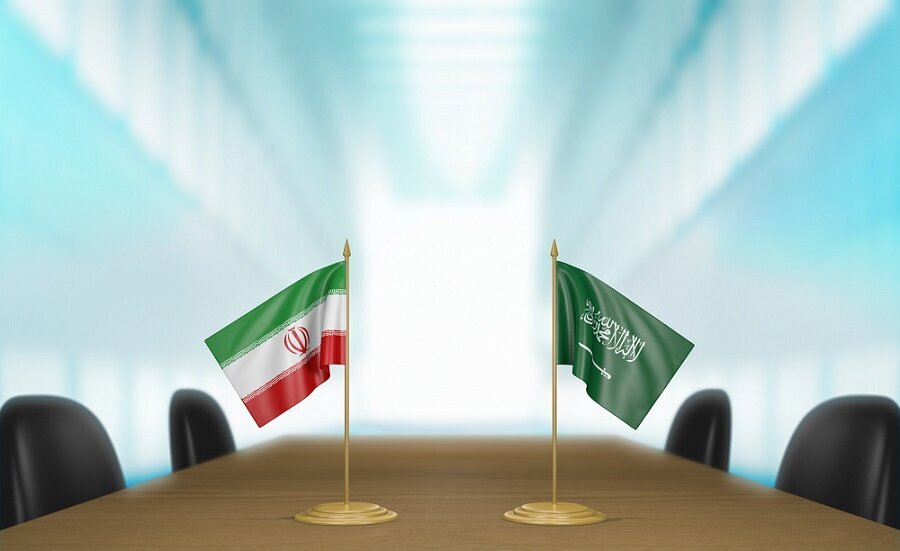Just days before Iran and the US returned to the negotiation table, Saudi Arabia’s defense chief touched down in Tehran, signaling a sharp recalibration in Saudi Iran relations.
A historic meeting unfolded in West Asia as Saudi Arabia’s defense minister landed in Tehran and met with both the Iranian supreme leader and the president — just days before Iran and the United States were set to resume negotiations. This visit? Unprecedented. We’re talking about a moment that could mark a total recalibration of regional power in the Gulf, after decades of hostility.
Timeline of Iran-Saudi relations – Al Jazeera
First Saudi Defense Visit Since 1979
Prince Khaled didn’t just show up for a courtesy call. According to local reports, he carried a confidential message from King Salman bin Abdulaziz. While Iranian state media confirmed the delivery, they didn’t reveal what it said. But the very fact that this exchange happened? That alone speaks volumes. It’s historic.
He’s the first Saudi defense minister to set foot in Iran since the 1979 Islamic Revolution. And not just that — the highest-ranking Saudi royal to visit in nearly thirty years. Last time something like this happened was back in 1997, when Crown Prince Abdullah went to Tehran for an Islamic summit.
How China brokered the Saudi-Iran deal – BBC
A Region Talking to Itself, Without the US in the Room
Let’s call it like it is. This is not just diplomacy — this is two major powers in the Gulf reasserting control over their own narrative. No Washington. No European intermediaries. Just Riyadh and Tehran, talking. Saudi Iran relations, once defined by proxy wars and diplomatic freeze, are now inching toward normalization. This comes after China brokered an agreement in 2023 for Riyadh and Tehran to re-establish diplomatic ties.
The Saudi Press Agency says Prince Khaled had multiple meetings around rebuilding bilateral ties and exploring shared interests. Iran’s state media confirmed a sit-down with military chief Gen. Mohammad Bagheri — the two sides discussed defense collaboration, anti-terror initiatives, and peace frameworks. This new direction in Saudi Iran relations shows a preference for regional self-determination over foreign dependency.
Iran military position in Gulf politics – Foreign Policy
Riyadh Publicly Backs Iran’s Talks with the US
Here’s the kicker. Just last Saturday, Riyadh went public with its support for Tehran’s upcoming nuclear talks with Washington. That’s not a small move. That’s a clear signal — Saudi Arabia is backing a regional solution, even if it sidelines US strategic dominance.
In his posts on X, Ayatollah Khamenei pushed for self-reliance and warned that foreign players will try to derail peace. Prince Khaled echoed that and said Riyadh is ready to partner with Iran across a wide spectrum. He called the Tehran discussions “constructive and encouraging.”
Annual Food Waste in Saudi Arabia Exceeds $10 Billion
All of This Happens as Yemen Peace Efforts Continue
Don’t forget what’s happening in Yemen. Prince Khaled’s trip also comes as Saudi Arabia tries to seal a peace deal with the Houthis. Sure, there’s a ceasefire in place — but it’s shaky, and the rhetoric from the Houthis is heating up again, especially after recent US military moves in the region.
This makes the Saudi Iran relations even more crucial. Because for the first time in decades, the two biggest regional players are meeting halfway without waiting for the West to draw the blueprint.
FAQs
Q: Why is this visit by Prince Khaled important?
Because it breaks a 45-year freeze in military-level diplomacy and puts Saudi and Iranian interests directly on the table.
Q: Is this a loss for the US in the region?
Yeah — the US isn’t calling the shots here. Iran and Saudi Arabia are talking directly, and that shifts the strategic center of gravity in the Gulf. Iran-Saudi cooperation bypasses Western mediation, reducing reliance on US-led frameworks.
Q: What role did China play in improving Saudi Iran relations?
China brokered the 2023 diplomatic deal that reopened channels between the two nations, encouraging regional self-determination.
Q: What’s Iran gaining from this?
Legitimacy, regional recognition, and a possible lift in international diplomacy through strategic ties — without compromising sovereignty.
Conclusion: The Script Is Being Rewritten, and Not in Washington
As Saudi-Iran relations enter a new chapter, one thing is clear: the region is taking its future into its own hands. This isn’t just a warm handshake. This is a message — loud and clear — that the Gulf is rebalancing. And as Iran and Saudi Arabia build this new chapter, the old playbook written in DC might not apply anymore. The region’s two heaviest hitters are now writing their own rules. Yes! the next chapter is being authored in Tehran, Riyadh, and beyond.


